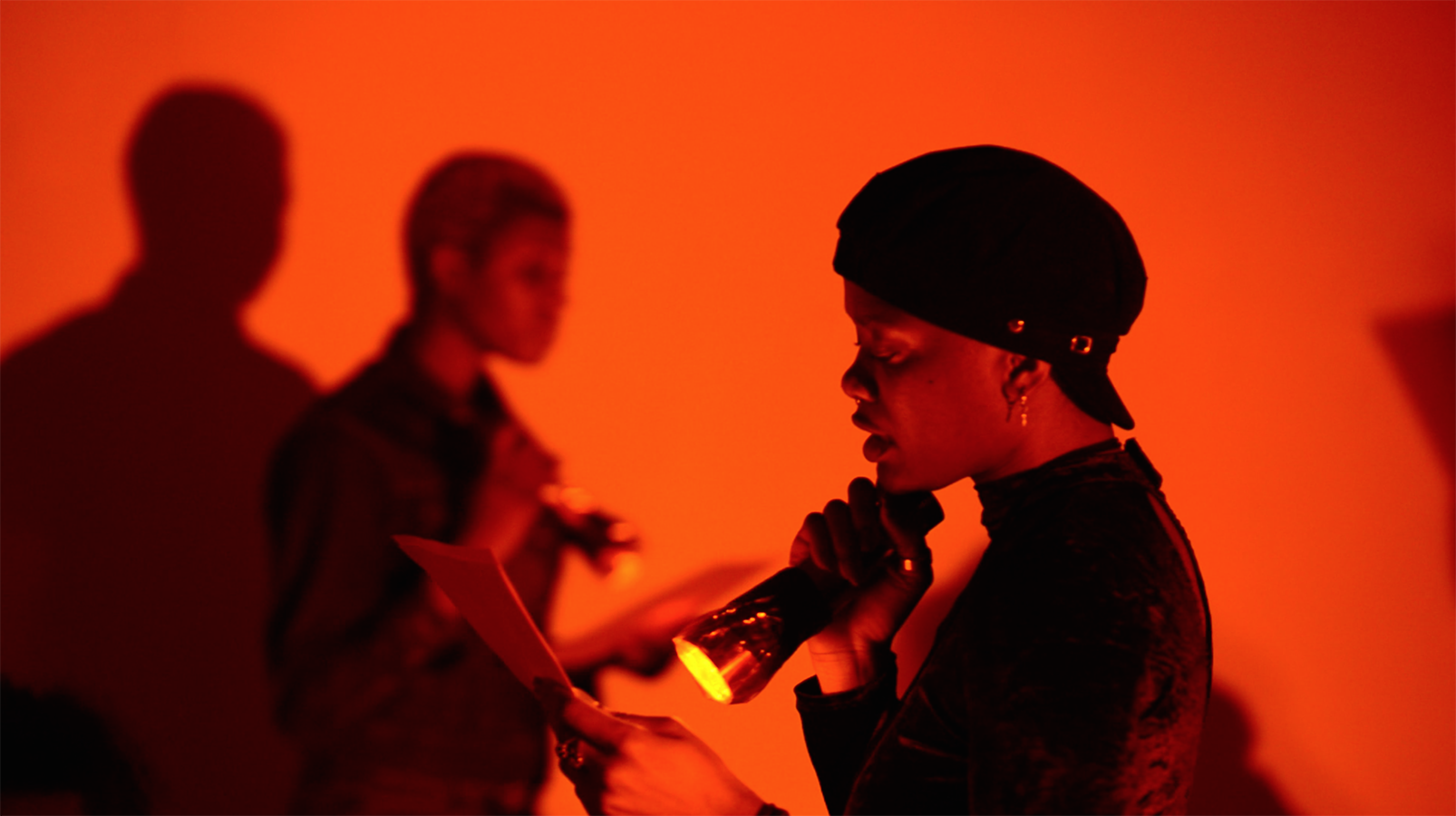Shenece Oretha believes in sound’s mobilising potential and maintains listening as an embodied practice. “I pay close attention to not just the music but the musicality of Black and Caribbean speech, traditions, spiritual practice, and literature. I draw inspiration from the approaches to listening and sound in the texts of Black women writers and the improvisatory and expressive strategies of Black avant-garde music.” Through multi-channel sound installations, they focus on the electronic speaker’s body relation to the human body. In Conspiracy: After Jeanne Lee (2021) two intertwining speakers stand as figures. The speakers begin with two disparate breaths before eventually joining together in harmony.
Oral tradition, conversation, and gathering play a vital role in her work. In works such as TESTING GROUNDS (2019) and Who Can’t Hear Must Feel (2018), recordings of figures in her community resound, with Shenece disseminating their words as well as archiving their voices. Dearly Beloved (2019) is a sculptural sound work inspired by a passage from Toni Morrison’s Beloved: “Long notes held until the four-part harmony was perfect enough for their deeply loved flesh”. Shenece negotiates the question – what is it to be moved by what you hear? – playing an inaudible bass through speakers adorned with vibrating strings of gold tambourine disks.
Video Credit: Possibilities is a visual score created by multi-disciplinary artist Shenece Oretha in response to the ‘Playtimes’ collection and as part of the project ‘Notes on Play’, commissioned by the British Library.
